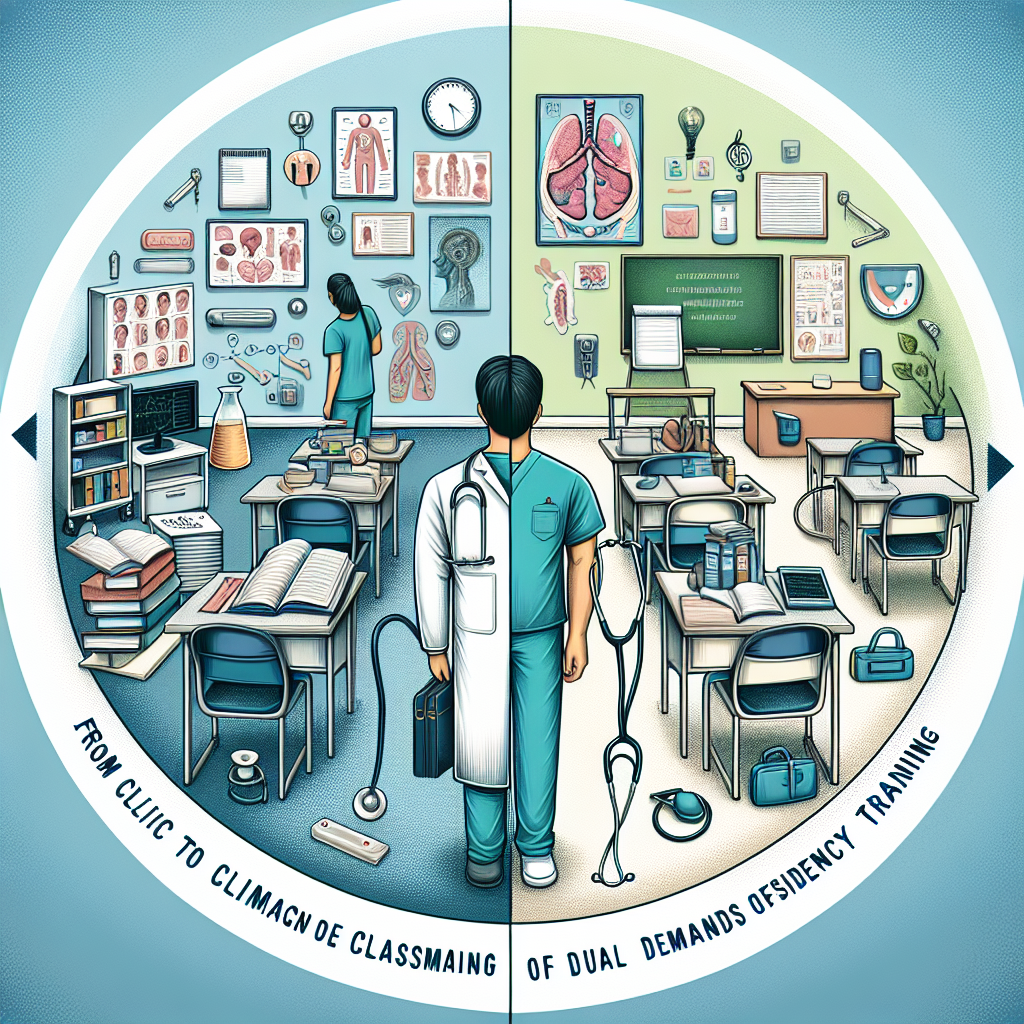Embarking on a residency program is akin to walking a tightrope — balancing patient care responsibilities with the demands of academic life. For many aspiring healthcare professionals, the transition from medical school to residency presents a unique set of challenges. This article will explore how residents can effectively navigate this duality, emphasizing the importance of time management, emotional resilience, and support systems that make the journey smoother.
Understanding the Residency Experience
The Nature of Residency
Residency is an intensive training period where newly graduated physicians gain hands-on experience in their chosen specialties. For years, medical students dream of donning a white coat and step into the role of a resident. However, this transition does not come without its challenges. Residents are often faced with long hours, night shifts, and the emotional weight of patient care, all while trying to keep pace with academic requirements.
The Dual Role of Resident Physicians
Residency training can be divided into two main roles: that of the clinician and the academic learner. As clinicians, residents are entrusted with patient care, diagnosis, and treatment. Simultaneously, they are also expected to engage in classroom learning, lectures, and research. This dual responsibility can feel overwhelming, but it also provides an invaluable opportunity to synthesize knowledge in real-time.
The Importance of Time Management
Prioritizing Tasks
Time management is crucial for residency success. With so many tasks demanding attention — patient rounds, educational lectures, and case studies — it’s easy to feel overwhelmed. Developing a robust schedule that prioritizes tasks can help residents stay focused. Tools like planners, digital calendars, or project management apps can serve as effective aids in organizing time.
The 80/20 Rule
One effective strategy is the Pareto Principle, or the 80/20 rule, which suggests that 80% of results come from 20% of efforts. Residents can apply this principle by identifying and focusing on high-yield learning topics and clinical skills that will have the most significant impact on their practice and examinations.
Building Emotional Resilience
Acknowledging Stress
The physical and emotional demands of residency can lead to feelings of burnout and exhaustion. It’s essential for residents to acknowledge these feelings rather than ignore them. Residency can often feel isolating; however, sharing experiences with fellow residents can foster a sense of community and belonging.
Self-Care Strategies
Implementing self-care strategies is vital for maintaining emotional well-being. Simple practices like mindfulness exercises, regular workouts, and establishing a support network can make a significant difference. Prioritizing sleep and nutrition is also crucial; even small changes can lead to improved mental health and cognitive function.
Leveraging Support Systems
Mentorship Programs
Finding a mentor can make a world of difference. Mentors provide guidance, encouragement, and advice, helping residents navigate the complexities of their training. They often have first-hand experience managing the dual demands, providing practical tips and emotional support when times get tough.
Peer Support Networks
Residents should not underestimate the power of peer support. Joining study groups, participating in team activities, or simply confiding in fellow residents can create a support system that helps individuals cope with stress and share the load of residency together.
Integrating Learning and Practice
Active Learning Techniques
One effective method for integrating classroom learning with clinical practice is through active learning techniques. Engaging in discussions, case-based learning, and problem-solving can enhance understanding and retention of material. By applying classroom knowledge directly to patient care, residents can reinforce their skills and gain confidence.
Continuous Reflection
Taking time to reflect on daily experiences can enhance learning and emotional resilience. Keeping a journal can allow residents to process complex emotions and situations, fostering personal growth and professional development.
Conclusion
Navigating the dual demands of residency training is no small feat, but with deliberate strategies and support systems in place, residents can thrive in both the clinic and the classroom. By mastering time management, building emotional resilience, leveraging support networks, and integrating learning with practice, future physicians can not only succeed in their training but also find fulfillment in their journey. After all, the rigors of residency are not just a phase; they are an opportunity to evolve into capable healthcare practitioners ready to make a difference in the lives of others.


